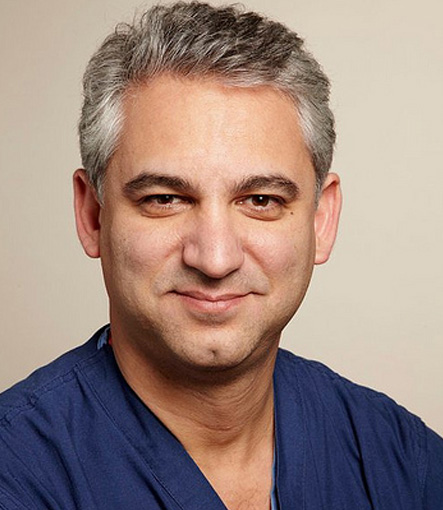Who Should Not Use Active Surveillance for Prostate Cancer – Dr. David Samadi Explains
NEW YORK, NY (PRWEB) NOVEMBER 08, 2016
New findings from a recent study, evaluating the association of circulating testosterone concentrations in men with low-risk prostate cancer, showed that men with a testosterone level less than 300 ng/dl should not use active surveillance as a treatment option.
“This study provides valuable information in regards to making the decision of which men with low-risk prostate cancer can safely use active surveillance for treatment,” said Dr. Samadi. “Active surveillance has emerged in recent years as an excellent option for men with low-risk prostate cancer who choose not to undergo immediate surgery or radiation therapy. During active surveillance the prostate is still carefully monitored for signs of progression by conducting routine PSA blood tests, digital rectal exams and repeat biopsies looking for any changes. What has made it difficult to determine is if all men with low-risk prostate cancer are automatic candidates for active surveillance.”
This study recruited 338 men with prostate cancer who met the active surveillance criteria but opted instead to undergo radical prostatectomy. Men who had hypogonadism, which is defined as a serum testosterone level below 300 ng/dl, had a significant association of a higher likelihood of upgrading, upstaging, and unfavorable disease with positive surgical margins.
“Up to about 25% of older men have hypogonadism,” explained Dr. Samadi. “If these same men also have other disease condition such as obesity and metabolic syndrome, these can be risk factors resulting in a greater chance of a more advanced stage, high risk of recurrence and risk of death from prostate cancer. All of that information needs to be factored in the decision.”
Research results showed that men with a testosterone level of 300 ng/dl or lower was associated with a significant 11.6 –fold increase of upstaging, 3.6-fold increased odds of upgrading, 10-fold increased odds of unfavorable disease, 2.2-fold increased odds of positive surgical margins and 6.7-fold increased odds of predominant Gleason 4 disease when compared to men with a testosterone level of 300 ng/dl or higher.
“The data from this study goes along with other studies that have shown men with low serum testosterone levels or hypogonadism tend to have more aggressive prostate cancer,” stated Dr. Samadi. “The information from this study is important as it used a large population of patients with good statistical analysis. There has always been a need to improve upon the selection process of men who are good candidates for active surveillance to help reduce reclassification of their risk during a follow-up”
Dr. Samadi went on to say, “I agree with the study and it makes sense that using total testosterone as a selection criterion along with the man’s age, his PSA, PSA density, clinical stage, and positive cancer involvement in cores will be a benefit to improving the accuracy of predicting the cancer and whether to recommend active surveillance or not. Men with hypogonadism need to be monitored more carefully and from this study, it highlights that active surveillance is not for every man with low-risk prostate cancer.”
Patients newly diagnosed with prostate cancer can contact world renowned prostate cancer specialist and urologic oncologist Dr. David Samadi at 212-365-5000 for a free phone consultation or by visiting ProstateCancer911.com.






